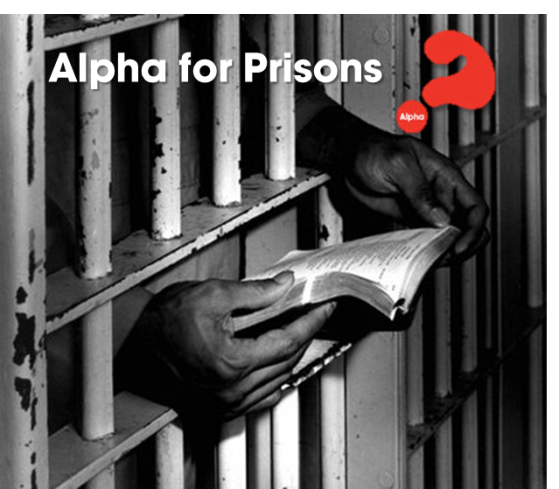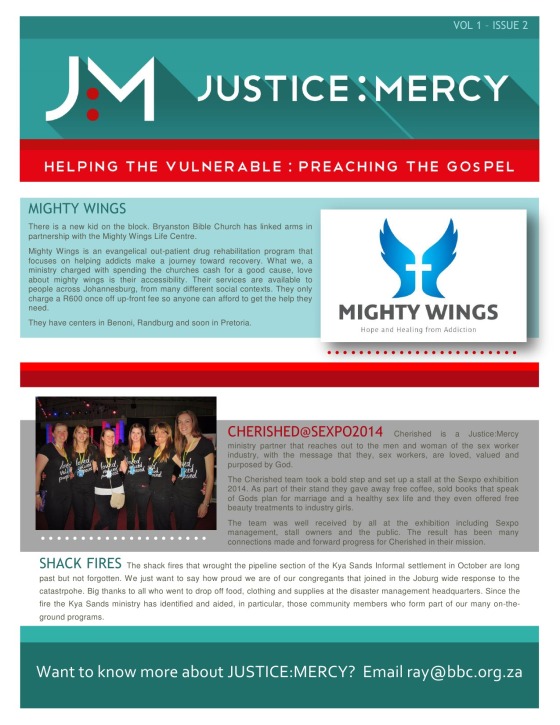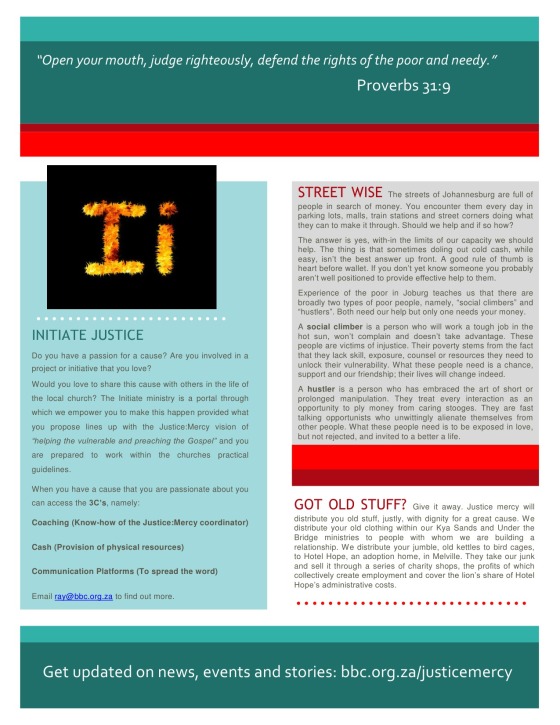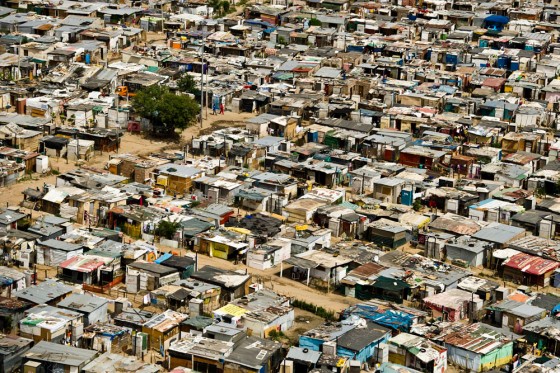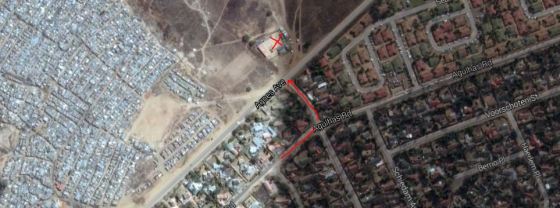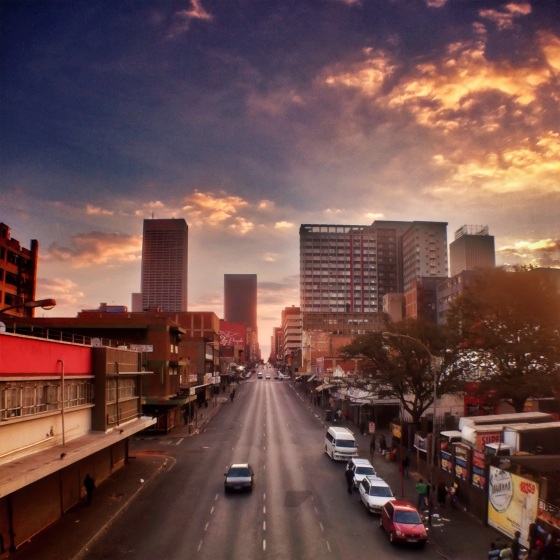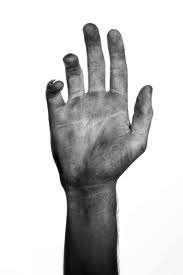
It is said, at present South Africa has a gini coefficient of 63.14. It’s a fancy number but what it means is a relatively small percentage of the total population has the lion’s share of the country’s total income. In turn this means that what some are able to spend on a Sunday lunch is equivalent to another family’s monthly rent. What some are able to spend on monthly coffee fixes would be enough to feed a person over the same period.
How is it possible to live this way with such minimal disturbance? As we can see it’s easier than one expects it to be. It’s the legacy of those who came before us and is perpetuated by us into the current day. Due to these inherited socio economic/racial divisions people are accustomed, not forced, to a highly compartmentalised way of life. The rich and poor live and move in very different circles; the partitions between them are subtle. They are practical things like the price charged for rent, admission, refreshment or entertainment. These barriers are strengthened by suspicion; “we shouldn’t go to that part of town because it’s not safe” or “if we go in there we won’t be welcome”. These circles are frequented by choice. They are safe bubbles where it’s possible to enjoy respite from the vast inequality that engulfs us.
So this is the question, “how do we, and should we, bring people together?” The answer is the Gospel. The gospel is a unifying force. It doesn’t segregate. It came to bring salvation, liberation, equality and justice. Jesus had little time for classism and repeatedly associated with the outcasts the undesirable and the unruly. He did it intentionally to show his values. He taught consistently never to show preference to people based on their class or social standing. To show deference to a particular individual over another never tallied in his economy. He shows us that these sincere exchanges are innately powerful. They demonstrate the power of the Gospel to break societal norms and promote the downcast.
As we read the scriptures we can see that Jesus did one thing consistently to demonstrate this during his ministry. He gave his time. We read about him spending time with sinners, poor people, prostitutes, tax collectors, pharisees, lepers, samaritan woman, zealots and thieves. These were not his natural circles. Rich, poor, Jew, gentiles, clean or unclean it didn’t seem to make a difference to him. Many of these sessions were over a meal where they were free to relate to one another. These were not rushed engagements but intentional interactions designed to facilitate deep and real communication. During this time he would disarm, challenge and reveal himself to his company. Interestingly there are few to no references of Jesus dishing out money during these engagements. It seems to imply that the interactions themselves were more valuable than money. His time was not for sale and he never reduced his interactions to transactional exchanges. He demonstrates to us that respect and connection are more valuable than money. They are the force that makes equality happen and allows the Gospel to be communicated and permeate one individual to another.
In simple terms our bubbles are barriers to healthy gospel relationships. If Jesus lived in our city it’s doubtful he would conform to this phenomenon but would actively oppose it. Jesus would connect and reach out. He would be in the streets, the malls, the stadiums, the banks and in the townships making friends and building relationship. Learning who they are, where they come from, what they dream of all the while touching their hearts with the message of his glorious salvation.
We should do the same. We should be connecting, befriending, engaging . Before we think about opening our wallets we should be sharing our time. Instead of loose change let’s give respect. Instead of charity let’s give friendship. Instead of bubbles let’s give the gospel. Shortly after there may follow a time for money. Having establishing a meaningful relationship the road to success becomes clearer. With relationship comes perspective, with perspective comes understanding and from there should follow advice, positive challenge and a game plan. After all South Africa can’t stay this way forever.
So what should you do?
Value people. Treat them with uncommon respect. Go out of your way to see them as your equal and linger in your interactions. People can tell when you want to be with them or not. Love must be sincere.
Make some friends outside your bubble. Take an extended time to get to know someone you wouldn’t normally. A good place to start is someone already in your circle but you would automatically associate with in a different role.
Explore. Go somewhere you wouldn’t normally go. Go to a township, go to a rural area, go to a different part of town.
Don’t allow your connections to be transactional. As a community we are programmed to deal with beggars. People who seek out the wealthy to ask them for money. Don’t get stuck in this mind-set but push for real interactions upfront. After all you’re not an ATM either.
If the situation calls for it, after building a relationship, offering positive challenge and providing advice on structuring a track to success, seek an opportunity and use your resources to help.
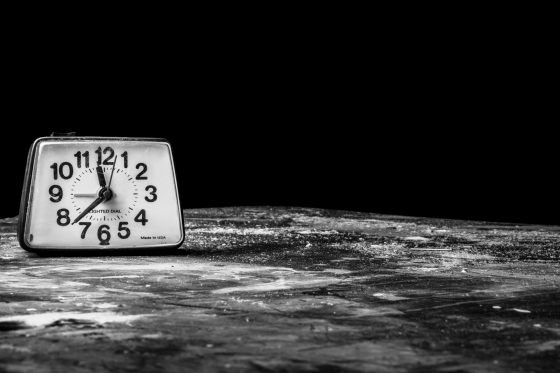 How many of us have heard of someone passing away this past month? My guess is there are countless news reports and stories we have heard of people who have lost their lives. This is a very depressing way to start a blog post, and I apologize for that. My hope, however, is that it brings us all to the question: what am I living for? Here’s a famous quote from Mark Twain to get you thinking: “The two most important days in your life are the day you are born and the day you find out why.”
How many of us have heard of someone passing away this past month? My guess is there are countless news reports and stories we have heard of people who have lost their lives. This is a very depressing way to start a blog post, and I apologize for that. My hope, however, is that it brings us all to the question: what am I living for? Here’s a famous quote from Mark Twain to get you thinking: “The two most important days in your life are the day you are born and the day you find out why.”
